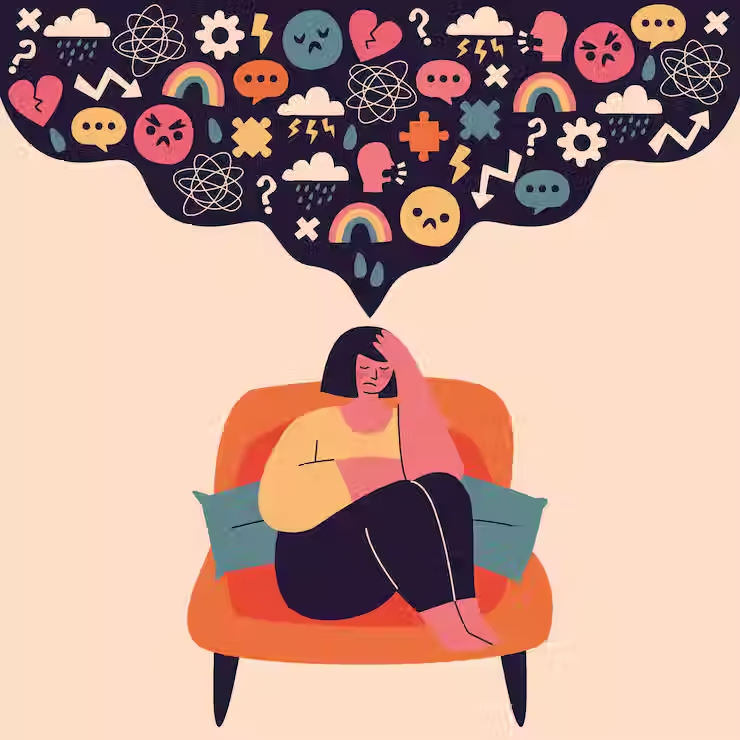Supporting and Empowering International Students
- Sara Gómez Trillos

- Nov 23, 2024
- 3 min read
Updated: Nov 28, 2024
Author: Sara Gómez Trillos

Photo: Colombian flag (horizontal tricolor shades of yellow, blue, and red) on building with clouds and trees in background.
From a young age, I knew I wanted to be a scientist. Growing up in Medellín, Colombia, I saw the opportunity to study abroad as my best chance of learning about research and building a successful career in the field.
I moved to the United States and began studying Psychology and Physics, eventually changing the latter to Cognitive Science. Before college, I didn't know a single thing about research, nor did I know anyone who held a PhD. Academia was a black box to me. Very early in the school year, the Psychology Department began sharing and advertising opportunities to volunteer as an Undergraduate Research Assistant in the labs. So, I joined a lab! I didn't spend too much time thinking about it, other than choosing to apply to one focused on a subject that interested me. I was fortunate to find a team with an amazing work ethic and environment. Due to funding limitations and my status as an international student, I volunteered there for three years and completed my thesis under the mentorship of the lab's Principal Investigator (PI), and a graduate student.
Looking back, being an Undergraduate Research Assistant was crucial to my development as a research scientist. It was at my first lab where I learned the basics of conducting health and social science research, where I learned to treat participants with respect, and where I set standards for the kind of people whom I wanted to surround myself with in academia—super smart, kind, and good humans above anything else.
After graduating, international students in the U.S. can apply for an Optional Practical Training (OPT) or work permit. Typical OPTs last one year; however, STEM degrees are eligible for up to three years. Unfortunately, despite both of my degrees being related to science, neither was eligible for a STEM extension. I had one year of OPT approval and three months to find an employer who would hire an international applicant.
Again, I was incredibly lucky to find a new PI at Georgetown University, who was seeking a Research Assistant and Project Manager bilingual in English and Spanish. My interview for the position was beautiful! The PI, Dr. Alejandra Hurtado de Mendoza, was excited to speak with me and we spent more than an hour bonding over research interests. I knew that I was being offered the position. We spent the next six years building her lab together, from her first small pilot research grants to her first R01.
I am grateful for Dr. Hurtado de Mendoza's trust over the years. Not only did she push me to learn, but she trusted me to lead above and beyond what other PIs may entrust their staff or students. I published my first first-author paper in our first year working together and she supported me through completing a Master of Science (MS) while working full-time, sponsored my H1B visa, and was flexible and understanding during the COVID–19 pandemic, and through my travels to visit my family abroad. At Georgetown, I found a community of incredible mentors who showed me respect, trust, and encouragement. Once again, I learned what I wanted to do and how I wanted to do it, as well as what I did not want to pursue.
A few years ago, I decided that I did not want a full-time academic career. I have since been fighting with my desire to complete a PhD. I spent months trying to find a new job in the U.S. that would allow me to grow into an industry other than academia; however, I was met with many closed doors due to my immigration status and visa requirements.
At the end of 2023, I decided that it was time to let go and return home. Thanks to the immense privilege of being able to return to my parents' home, I finally took the sabbatical that I've been dreaming of since I was 26. I've spent my year reading, writing, learning, and thinking. I finally decided that research and being a scientist is, in fact, a huge part of my life and my identity, and while I do not envision myself working full-time in academia, I do see myself living with one foot in scientific research and one in industry, working to create impact through evidence-based tools. So, I am finally applying to a PhD.
After 10 years of working in health and tech research, and a MS degree in Global Health (which also doesn't count as STEM for visa-purposes—at least, not when I graduated), I think that Epidemiology and Biostatistics will do the trick. Finally, I'll be a "woman in STEM."




Comments